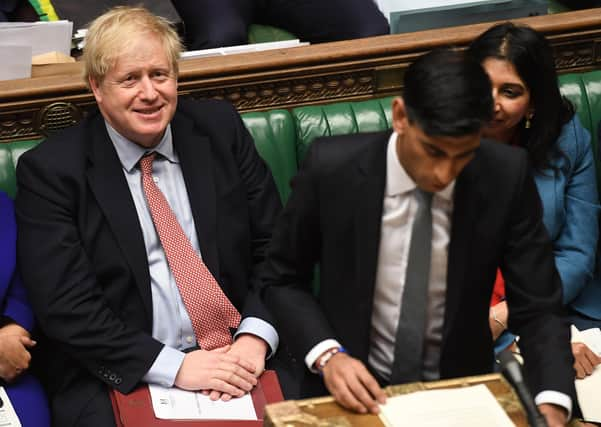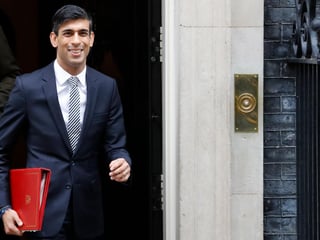Four decades of Thatcherite politics end in an unexpected way – Joyce McMillan


If we are spared – and despite the severity of the coronavirus crisis, it seems that most of us eventually will be – much will be written about what we learned, or failed to learn, from the current pandemic. Already, though, one thing is clear: and that is that the arrival of this crisis – searching out, as it does, the fundamental weakness of societies with poor, over-stretched public services, and underfunded or grossly unequal health systems – marks the end of the long age of glad, confident neoliberalism which effectively began with the election of Margaret Thatcher in 1979, and lasted until the final months of 2019.
It’s now difficult to recall that even after the calamitous financial crash of 2008, David Cameron and George Osborne ascended to government in 2010 still driven by the ideological assumption that shrinking the state, and making the crash a pretext for additional austerity, represented the only viable way forward. Not only did they believe this themselves, but they had the full support of their Liberal Democrat coalition partners, and – between those two parties – of well over 50 per cent of those who voted in that election; as well as of an overwhelming consensus across government, the markets, and most mainstream media.
Advertisement
Hide AdAdvertisement
Hide AdYet ten years on, and with very little public discussion of the huge ideological shift that has taken place, we now see a Conservative Government, backed by many of the same forces, responding to the present cluster of crises – including both coronavirus and Brexit – by indulging in behaviour which the right-wing Adam Smith Institute this week described as “spending like a drunken sailor”. In his budget statement on Wednesday, the Chancellor Rishi Sunak announced not only £30 billion of short-term additional spending to mitigate the effect of coronavirus – a sum almost equal to the entire annual budget of the Scottish Government – but also a massive programme of infrastructure investment, including, an eye-watering £27 billion for road construction and upgrading, over the next few years.
These figures are doubly striking because this self-same Government – with its proclaimed ambition to use infrastructure spending to “level up” the nation – has just won an election against a Labour Party whose manifesto was widely derided for suggesting that the UK needed a substantial surge in public spending, and could afford to pay for one. At £55 billion a year, Labour’s infrastructure spending plans were admittedly ambitious. Yet on Tuesday, the Treasury was running around briefing journalists that the ©overnment intends to pour an extra £600 billion into Britain’s infrastructure over the next decade or half-decade; a sum which at the least equals the proposed Labour programme, and at most more than doubles it.
And this sudden change in the political weather helps explain many of the strange phenomena currently stalking British political life. In the first place, it explains why, in the 11th consecutive year of Tory government, so many at Westminster and across the nation seem convinced, since the general election, that they have a “new Government”. It was not the kind of change we saw in 1979 or 1997, when one party replaced another. It was, though, a decisive shift from government by one kind of Conservative Party to government by another, achieved by a kind of coup d’etat within that party. And it comes as a timely reminder that the Conservatives have rarely, in their long history as the great survivors of British politics, been a party of principle; and much more often a party of pragmatic opportunism, for which the notoriously unprincipled Boris Johnson is perhaps the perfect 21st century leader.
Secondly, it helps clarify why so many Jeremy Corbyn supporters feel that they “won the argument” in last year’s election, even though Labour performed so badly. It’s a point of view much derided by Labour Blairites and centrists; but the Corbynistas are absolutely right to point out that even Boris Johnson now seems persuaded of their key argument that the age of austerity was destroying local economies and exaggerating inequalities, and ought to be brought to an end.
And thirdly, it makes it clear that there is now, finally, a new argument to be had; not about whether the state should spend more, but about how that money should be raised and spent. At the moment, the Conservatives are indeed stumbling about like drunken sailors, in a newly discovered rainforest of ‘magic money trees’; indeed the effect of the Tories’ blast-gun approach to their new public spending boom is to make last December’s Labour manifesto – which at least had the merit of being clearly focussed on a “green new deal” to create hundreds of thousands of new jobs in sectors that will help deliver on the UK’s climate targets – look like a relatively serious and well-organised piece of 21st century policy-making.
The Tories’ instincts, by contrast, clearly tend towards heavily centralised big government on the Gaullist model, sponsoring high-profile spending projects labelled with large Union Jacks, riding roughshod over local authorities and devolved governments if necessary, and using the odd fanfare of junk-shop patriotism to cover up any real deterioration in the well-being and quality of life of ordinary citizens.
And it seems to me that opposition parties across Britain – the SNP, as well as Labour – will therefore now have to be fleet of foot, in moving on rapidly from their traditional critique of the Tories’ laissez-faire economics and needless austerity. Instead, this new era will demand a rigorous takedown of how the Johnson spending boom may barely begin to heal the deep wounds of the last decade, not only in services ranging from the NHS to policing, but also in the very fabric of people’s lives and dignity. And it will also require a truly radical critique of the style and spending priorities of this new age of top-down Government largesse – not least because it seems to belong to some unlovely page of 20th century history; rather than to the new age of green social democracy, and of empowered communities and citizens playing a key role in shaping their own future, that some of us once hoped we might see at the moment when the long decades of Thatcherism finally came to an end.
Comments
Want to join the conversation? Please or to comment on this article.
